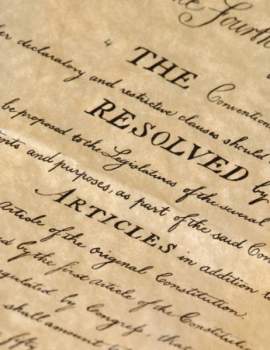
Differences Between a Patent and Copyright

A patent and a copyright are two forms of intellectual property holding many similar characteristics, though the differences between the two are quite numerous. The differences between the patents and copyrights are related to the types of work they protect, the manner in which they are established, and the terms of both protections. Both patents and copyrights exist on the basis that a person's ideas and work should be protected as a natural right to the owner and hard work and labor should be rewarded to offset the costs of creating new ideas, art, and articles. It is important to understand the difference between the two, as only certain products of labor are protected under a patent law and others under copyright law.
Protections:
The fundamental difference between a patent and copyright are the types of work each protects. Essentially, patents protect ideas and all derivative works that stem from those ideas, while in contrast, copyrights are designed to protect original expressions of ideas (not ideas themselves). An idea, protected under patenting, can be used to create new inventions, articles, designs, compositions of matter and other tangible products that may prove to be unique and useful to people. An expression of an idea comes in other forms, such as a sound recording, motion picture, photograph, drawing, or literary work.
The rules of these protections also differ between a patent and copyright. Although a patent is a strong protection handled and approved by the United States Patent and Trademark Office (USPTO), the protection only lasts for twenty years. Copyrights, on the other hand, offer protection from the moment of inception of the work, though are not strictly protected until they are registered with the United States Copyright Office. Also, a registered copyright lasts for seventy years after the death of the copyright holder. It is important not to mistaken a patentable idea for a copyright and assume that protection is automatically given to it after it is created because the idea may be stolen and used by another entity legally.
Goals:
The goal of patenting a invention is to exclude all other parties from recreating an inventor's work so that a monopoly is held over the idea to allow for financial gain and reward to offset the inventor's investments. Not only will the inventor be rewarded after patenting an article, but since the idea is disclosed to the public, it is also meant to help stimulate new ideas through innovation and inspiration, while keeping a country's economy in a healthy state of expansion.
A copyright is protection on the expression of an idea, which rewards people for their creativity and ability to construct new ideas through works of authorship. A copyright holder is rewarded by their labor by maintain exclusive rights to a work, to profit off of it, license it to other parties, or transfer ownership to another entity. These rewards of copyright ownership of a valuable asset explain the goal of copyright: to stimulate the production of creative ideas. In a world without copyright protection, the incentive of creating new ideas would be lost without the prospect of benefiting from sole ownership. Similar to the idea behind patents, it is important for authors of work to be able to recoup their investment in a project.
NEXT: Differences Between a Patent and Trademark





















